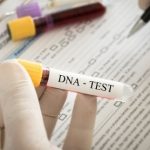With the stroke of Gov. Ted Strickland’s pen on April 6, experts say Ohio now has some of the best laws in the country to protect the innocent from wrongful convictions and put the right people behind bars.
Strickland, joined by a handful of men who were exonerated after serving years in prison for crimes they did not commit, signed Senate Bill 77. It sets statewide standards for retaining biological evidence, requires the taking of DNA from anyone arrested on a felony charge and requires new procedures for suspect lineups.
Goodman introduced the bill after a Dispatch investigation in January 2008 exposed widespread shortcomings in Ohio’s DNA law, including the derailing of prisoner DNA tests by systemic indifference or hostility.
In addition to requiring that DNA samples be taken from anyone convicted of a felony after July 1, 2011, the new law:
•Requires law-enforcement agencies to retain biological evidence for up to 30 years in murder and sexual-assault cases. The limit is five years when a defendant pleads guilty.
•Opens DNA testing to parolees and those on the sex-offender registry.
• Mandates blind suspect lineups, in which the officer presiding either does not know the identity of the true suspect or uses a photo-lineup technique in which only the witness can see pictures placed in folders.
•Gives an incentive for law-enforcement officials to record interrogations.
(excerpted from Jim Siegel of THE COLUMBUS DISPATCH)




